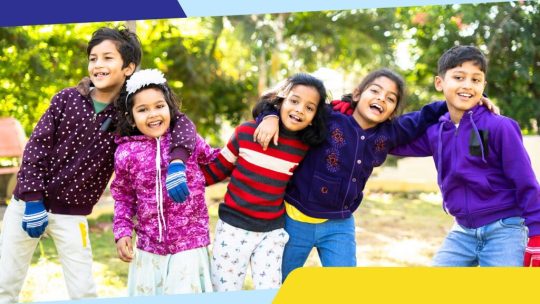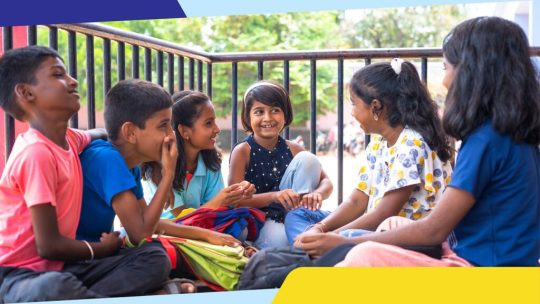#social-emotional learning
Text
A Shout-Out to the “Manga in Libraries” Guide

For those who don’t know, I’m a fan of borrowing manga from my local library. I’m very thankful that I’m in a situation where my library has managed to hold off budget cuts every year. And more importantly, there’s some damn good librarians in New York City who care about manga. Around 2021, I found out about a librarian in my area specializing in Japanese pop culture who started a website curating information on how to advocate for manga in libraries. The librarian’s name was Jillian Rudes, who has gone on to do amazing things in the North American library scene for manga. She’s the founder of Manga in Libraries and earlier this year, she released a book for teen librarians called “Manga in Libraries: A Guide for Teen Librarians” on how to get started in promoting manga for educational purposes at their respective library branches.
I managed to borrow a copy from my library and I’ll say that it’s a solid resource.
At first, I was surprised at the size of the book (it’s about 130+ pages) because I was somewhat expecting a huge book due to reading various large books on manga over the years. Don’t be fooled though because there’s a lot of great information found carefully catered to the librarian and educator audiences. Jillian starts off by saying “Why Manga?” followed by a introduction to manga itself, how the text needs to be read, the various genres, U.S. publishers, etc.
The book is followed by chapters on developing a manga collection in a library, representation in manga, social-emotional learning, manga programming, and teaching in manga. Several interviews with notable manga experts are featured as well.
While every chapter is great, the strongest parts of the guide in my opinion are the chapters on social-emotional learning and teaching in manga. Jillian does an excellent job in explaining the core concepts of SEL and how they can be applied to libraries. She even discusses topics like emotional intelligence and the feelings wheel as well. Jillian makes a powerful case in how manga supports SEL using Komi Can’t Communicate as an example.
Jillian would later highlight Komi Can’t Communicate among other titles when she discusses how to use manga as a teaching tool in the classroom. She provides a template on how to go about creating a course on manga using her own experience in teaching manga to 12th graders at her school. It’s a very thorough one as Jillian explains specific activities she would incorporate to slowly get students engaged in learning through manga over a certain amount of weeks. The payoff is getting students REALLY involved in the teaching/learning process as they are told to create their own manga reading guides for the manga titles being discussed in their class.
As someone who doesn’t work in a library, I can only speak for the two chapters on SEL and teaching manga honestly because of my experiences and background in researching community-based initiatives for mental health. I’m all about thoughtful reflection with the help of peers and support systems outside of healthcare. I think Jillian does a wonderful job in explaining how manga can help in that area with those 2 chapters.
Reading the Manga in Libraries guide makes me glad that there are people who are trying to promote manga to teenagers in an educational manner. I think manga can change young lives for the better and I’ve seen it over time. Personally, I credit reading comics at a young age that got me on a journey to become a lifelong reader. I also like that the Manga in Libraries guide is in print because trying to find information on manga online can be a bit of a mess and very scattered. Jillian manages to condense a lot of resources in an easy-to-find manner for her guide.
Jillian makes a note in the end of the book that reading manga can create joy for those who read it. I believe it does for many people, especially teens who often feel out of place in the world we live in. And on that note, the Manga in Libraries guide is a joy that anyone interested in and/or advocating for manga education should not pass up on.
#manga reading#manga clubs#libraries#manga culture#education#social-emotional learning#mental health#teen readers#Jillian Rudes#Manga in Libraries
32 notes
·
View notes
Link
4 notes
·
View notes
Video
youtube
2 notes
·
View notes
Quote
[Children] have an instinct to help the weak, encouraging and comforting them, and this is really an instinct for social progress.
The Absorbent Mind, p.230
Maria Montessori
2 notes
·
View notes
Text
Building the Essential Skills of Social-Emotional Learning
Imagine a classroom buzzing with engaged students. They're not just mastering academic concepts, but also navigating social interactions, managing emotions, and working effectively together. This is the power of Social-Emotional Learning (SEL).
SEL goes beyond traditional academics, focusing on developing essential skills that equip students to thrive in all aspects of life. These skills can be categorized into five core competencies:
Self-Awareness: This involves recognizing one's own emotions, strengths, and weaknesses. Students who are self-aware can identify when they're feeling overwhelmed or frustrated and take steps to manage those feelings.
Self-Management: This competency focuses on regulating emotions, controlling impulses, and setting and achieving goals. Students with strong self-management skills are better equipped to persevere through challenges and stay focused on tasks.
Social Awareness: This involves understanding the perspectives of others, appreciating differences, and recognizing social cues. Empathy falls under this competency, allowing students to build positive relationships and navigate social situations effectively.
Relationship Skills: These skills encompass communication, collaboration, conflict resolution, and active listening. Students who develop strong relationship skills can build healthy connections with peers, teachers, and others.
Responsible Decision-Making: This competency involves evaluating situations, considering consequences, and making sound choices. Students who can make responsible decisions are better equipped to navigate challenges and avoid risky behavior.
Building SEL Skills: A Collaborative Effort
The development of SEL skills is a collaborative effort between educators, parents, and the community. Here are some ways to foster these essential skills:
Schools: Integrate SEL activities into the curriculum through role-playing scenarios, group discussions, and mindfulness exercises. Create a safe and supportive school climate where students feel comfortable expressing themselves.
Parents: Talk openly about emotions with your children, model healthy coping mechanisms, and encourage them to identify their strengths and weaknesses.
Community: Provide opportunities for social interaction and skill development outside of school through clubs, sports teams, and community service projects.
Investing in the Future
By prioritizing SEL, we are investing in the future of our children. Students with strong social-emotional skills are not only academically successful but also resilient, adaptable, and well-equipped to navigate the complexities of life. SEL empowers them to become not just good students, but also good citizens, strong leaders, and kind individuals.
Let's work together to build essential social-emotional learning skills and empower our students to reach their full potential.
0 notes
Text
Little Emotions, Big Feelings: Helping Kids Navigate Their Inner Volcanoes
Little meltdowns got you feeling overwhelmed? We've all been there! Equip your child with the tools to navigate their emotions in healthy ways. This article shares expert tips and strategies to help them understand and express their feelings. #FierceParenting #MindsetMastery #EmotionalRegulation #FierceLife #FierceMillennial
Equip your mini me with the tools to understand and express their emotions in healthy ways.
Raising kids is no easy feat, and navigating their emotional storms can feel like walking a tightrope blindfolded. From tantrums to tears, big feelings can leave both you and your mini me feeling overwhelmed. But fear not, fierce parents! We’re here to equip you with the tools to help your child…

View On WordPress
#children&039;s mental health#emotional regulation#FIERCE LIFE#Fiercemillennial#mindfulness#Mindset Mastery#parenting tips#social-emotional learning
0 notes
Text
How do we teach social and emotional skills to students in classrooms?

The concept of teaching social and emotional skills is not restricted to a single period in our school’s timetable. It is infused in the entire day on campus. This separates our academic institution in imparting curriculum-based learning. Social-emotional learning in the classroom is essential as long as children are present on campus.
The Shri Ram Universal School boasts a legacy that offers teaching social-emotional skills in various ways. For example, the history teacher will not only explain the valour of a king but ask the children to put themselves in ‘His Shoes’ as well.
There is more to imbibing social-emotional skills in school. As we try to become one of the best schools in Bengaluru North, we are sharing skills that kids may need to become responsible.

What are the benefits of SEL skills for students?
At a young age, children absorb everything happening around them in their environment. As they manage their emotions and interact positively, results are visible. Infusing knowledge, social skills and emotional empathy are essential for overall development. Kids have healthy identities and establish better relationships with the right cues and guidance.
Some skills are developed at an early age and specifically in schools like:
Understanding the perspectives of others (kids and adults) they interact with.
Identifying symptoms about how others feel. It could be pain, happiness, or being hurt.
Learning the importance of gratitude and thanking people who help.
Showing kindness and compassion for those below their rank or social position.
Appreciating the strengths of others.
Differentiating unjust responses or different social norms.
Being motivated and caring for the community at large.
Knowing how to develop relationships with family, teachers, friends and others.
As one of the upcoming schools near North Bengaluru, we impart social and emotional learning all day long. Even during recess or in the classroom, it is inevitable for students to be aware of their surroundings.
For example, while playing, some conflicts may arise. They need to tackle them in an appropriate manner rather than escalating the situation. This is where training and teaching are required for teachers to tackle the issue amicably.

A warm classroom culture is critical to learning social and emotional skills for students. Collaborating with each other on projects helps them to understand team spirit and cooperation. We ensure each student feels safe and respected within the classroom boundaries. They learn to have better relationships with teachers, and it is bound to improve their grades.
Teachers in our school do not impart only textbook knowledge but also social-emotional learning in the classroom. They listen through the words, expressions, and body language of the children. As they get responses, it is easy to discipline the class without being strict.
We look forward to welcoming children to our new academic institution in North Bengaluru. It is geared to be a font of learning where each young soul is respected. Do come and be a part of our academic family.
0 notes
Text
We want to provide our children with the best possible foundation for learning and development. One key aspect of this foundation is early literacy skills. These skills help children learn to read and enhance their cognitive, language, and social-emotional development.
0 notes
Text
Top 6 Products Fostering Emotional Intelligence: A Spotlight on Social-Emotional Learning in the Classroom
In a rapidly evolving educational landscape, social-emotional learning (SEL) has become a crucial aspect of modern teaching. SEL focuses on cultivating skills such as empathy, resilience, emotional regulation, and social interaction among students. It acknowledges that education is not merely about academics; it’s also about forming well-rounded individuals capable of navigating the challenges of…

View On WordPress
#Children&039;s Learning Tools#Educational Toys#Emotional Intelligence#Learning Resources#Social-Emotional Learning
0 notes
Text
youtube
James Lindsay | The Rise of Wokeness In Schools
Dr. James Lindsay is an author, mathematician, cultural critic and founder of New Discourses, a site dedicating to “pursuing the light of objective truth in subjective darkness.” In today’s episode, we discuss Lindsay’s new book “The Marxification of Education," the cult of critical theory and the “long slow march through institutions'' that corrupted the educational system by political activists masquerading as teachers, and how we can ultimately reclaim our schools.
#ben shapiro#the ben shapiro show#sunday special#james lindsay#new discourses#crt#critical race theory#critical pedagogy#social-emotional learning#schhols#children#groomers#grooming#cult#ideological grooming#drag queens#drag queen story hour#generative#the marxification of education#political activists#co-conspirators#Youtube
0 notes
Text
instagram
They are coming for your children.
#antifeminism#intersectional feminism#feminism#leftism#communism#SEL#social-emotional learning#Instagram
0 notes
Text
I've seen someone say that aplatonic people should seek psychological help because they've faced difficulties making friends in the past and improved after undergoing treatment. Well, a few points:
1. Your experience is not universal
2. I can't form friendships because I get bored and apathetic very quickly. And I have no desire to make friends. Like, not a little bit. Aplatonicity isn't just "having difficulty in making friends" (although an aplatonic person may have this experience, aplatonic people are diverse)
3. There are people who don't feel platonic attraction but have friendships (just like feeling sexual attraction ≠ liking to have sex, feeling platonic attraction ≠ like making friends)
4. Not every neurodivergent person who cannot form friendships seeks or will be able to "get better"
5. Your experience is not universal
#“The human being is a social being”#yes because we live in a society and most of the things we learned were through socialization#and we constantly need other people for essential things#the clothes you are wearing now were made by someone else#and yes#social interaction is important#this does not mean that people are forced to form emotional bonds that they do not feel like and that everyone feels the need#to form a certain relationship#if you can accept that sex and romance isn't mandatory why can you not do the same with friendships?#aplatonic#platonormativity
111 notes
·
View notes
Text
Shinjiham is cute when it’s romantic but tbh I think i vastly prefer the idea of them being best friends instead. Like, neither of them really saw it coming and weren’t really looking to get another best friend (Shinji has Akihiko, Kotone has Junpei and Yukari respectively) but it happens anyway. Kotone takes a liking to Shinji much faster than she does anyone else and I’d say a big reason is just the fact that he’s so reserved that it allows Kotone to do most of the talking while he just listens and they love this arrangement cuz Kotone doesn’t get to talk about her own interests very much. Though I think some of her needs to talk to Shinji stems from this insecurity that he isn’t happy in the group and she has this people pleasing problem and wants everyone to be happy so she makes a much bigger effort to talk to Shinji. And it’s very unfortunate because Shinji intentionally acts cold and distant because he doesn’t want to form any attachments because he wants to die soon, but aaaaaaaagh dammit this girl just keeps talking to him and being sweet and encouraging him to engage in his interests and share them with the others and he just can’t seem to say no when she’s got those damn puppy eyes. And Kotone is just able to get him out of his shell by being persistent but not in an overwhelming way, she’s very cheerful and supportive of him. And Shinji is able to offer her support by encouraging her to talk about herself and by making sure she’s taking care of herself. They just click really well and make such a positive dent in each other’s lives and it’s all about basic acts of kindness going a long way you know?
#persona#persona 3#kotone shiomi#shinjiro aragaki#i uh. probably didnt do much here to prove that their relationship is best when its platonic akjsks i mean idk how to convey it#that these two are just so good for each other but that im just not feeling it romantically#and why should i honestly like cant a guy and a girl just be platonic soulmates like me and jackie aljsks#plus i just have other ships with these characters i like better ahem akishinji and mitsuham yall already know#and i just feel really comforted by their relationship being best friends cuz it makes the pocket watch a lot more power of friendship#and it just. irks me the idea that its romantic love that saves shinji and its romantic love that gave him a will to live#cuz first off you can save him without romancing him and also like if you think kotone is the only person he wants to live for#youre just wrong like in fact its very clear in his social link that he feels this strong love for everyone#its literally like why other characters are so ingrained into his link he loves everyone and they love him back#its just kotone who organizes the time for them all to get together plus like idk when ppl say shinji only wants to live after romancing#kotone its like. well hes not gonna have a good time post coma then huh#and i suppose the point being made is he has to learn to live even if his gf isnt there but again like. shes not the only thing he has#idk i just hate this like pedestal romantic relationships are put on and i hate the implications that like#akihiko has been trying for years to protect shinji and his love doesnt matter cuz it isnt some heterosexual romance#grrrrr it just irks me is all and yeah i just think theyre besties who do everything together#kotone is like shinjis emotional support animal that guides him through the scary crowds and shinji is off putting enough to scare away the#meanies that come their way and they have a dress up montage and make cookies
28 notes
·
View notes
Quote
The result of concentration is an awakening of the social sense
The Absorbent Mind, p.273
Maria Montessori
0 notes
Text
Harmony Within: Embracing Social-Emotional Learning for Holistic Growth
In the ever-evolving landscape of education, one concept has risen to prominence for its profound impact on student success and well-being: social-emotional learning (SEL). More than just another educational buzzword, SEL is a holistic approach that recognizes the crucial role emotions play in learning and life. By nurturing emotional intelligence and interpersonal skills, SEL equips individuals with the tools they need to navigate the complexities of the modern world with resilience and empathy.
At its heart, SEL encompasses five core competencies: self-awareness, self-management, social awareness, relationship skills, and responsible decision-making. These competencies form the foundation upon which students develop the emotional resilience and social competence necessary for success in school, work, and beyond.
Self-awareness is the first step on the SEL journey, encouraging individuals to recognize and understand their emotions, strengths, and areas for growth. By cultivating self-awareness, students gain insight into their thoughts, feelings, and behaviors, laying the groundwork for personal growth and self-improvement.
Building on self-awareness, self-management empowers individuals to regulate their emotions, thoughts, and behaviors in constructive ways. Through strategies such as mindfulness, stress management, and goal setting, students learn to navigate challenges and setbacks with grace and determination.
Social awareness expands the SEL framework to encompass empathy and understanding for others. By developing an appreciation for diverse perspectives and cultures, students learn to recognize and respect the emotions and experiences of those around them, fostering a sense of belonging and inclusivity within their communities.
Relationship skills are essential for navigating the complexities of human interaction. From effective communication and active listening to conflict resolution and collaboration, students learn to build and maintain healthy relationships based on trust, respect, and mutual understanding.
Finally, responsible decision-making empowers individuals to make ethical and constructive choices that contribute to their own well-being and that of others. By weighing the consequences of their actions and considering the needs and feelings of those around them, students become ethical leaders and responsible citizens in their communities.
But SEL is more than just a set of skills to be taught; it is a mindset that permeates every aspect of education and life. From the classroom to the playground, educators play a crucial role in fostering a culture of SEL by modeling empathy, compassion, and integrity in their interactions with students and colleagues alike.
Furthermore, parents, caregivers, and community members also have a vital role to play in supporting SEL both at home and in the wider community. By reinforcing SEL principles and values in everyday interactions, families can create nurturing environments where children feel valued, supported, and empowered to succeed.
As we look to the future of education, it is clear that social-emotional learning will continue to play a central role in preparing students for the challenges and opportunities that lie ahead. By prioritizing SEL, we can unlock the full potential of every individual, fostering a generation of empathetic, resilient, and socially responsible leaders who will shape a brighter future for us all.
0 notes
Text
honestly it doesn't bug me that Jerry Seinfeld is bad at acting because the other main cast of Seinfeld are so good, Jerry's acting becomes a joke in and of itself.
#The three of them maintain the emotional immersion#Jerry's incredibly one-note acting is amusing but its not enough to overpower the costars and make the show feel fake#yknow???#Anyway. Jerry can do like. 2 emotions convincingly#mild social discomfort and mild amusement#legit his amused+disapproving reaction to his friends' bullshit usually (Elaine or George) is when the character feels most real#that and when he is trying to hide some mid / insulting opinion from a gf#On an in-universe note; it's VERY funny to imagine that Jerry is just an incredibly odd man#Always reacting as if amused on some level; speaks in a highpitch monotone whenever upset#Gives delightful autism vibes tbh#A guy who struggles with / cant do neurotypical emotional expression#He learned to be funny in order to be accepted socially (even turned it into a profit!)#but the catch is that this comedy-oriented mask is the only form of external emotional expression he knows how to do#'why arent you taking this seriously' 'istg i AM i just communocate exclusively thru jokes regardless of how i feel. yeah its a whole thing'#seinfeld#oh no she's writing headcanons abt the silly show#jerry seinfeld#my words#seinfeld thoughts
21 notes
·
View notes